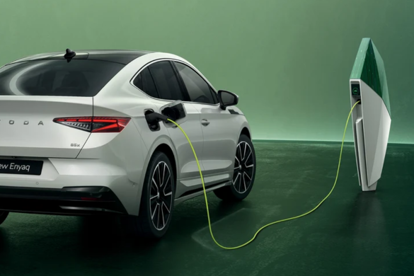
Why go electric?
As concerns about climate change and air pollution continue to grow, the EV market is expanding. We are here to help you make the switch.
Make the switch
Electric Vehicles are more accessible and affordable than ever, with many models offering a real world range of over 300 miles. EVs are the future and by switching you can help the planet through:
- Lower carbon emissions
- Zero tailpipe emissions
- Reduced noise pollution
EVs are also great to drive and offer significant financial savings.
It's a win-win, reduce your carbon footprint by switching to a more efficient and fun to drive EV.



Saving money with EVs
Electric Vehicle (EV) running costs are cheaper than petrol or diesel alternatives. Charging at home - either through a wall charger (such as our recommended Optimus by Go Zero Charge) or through a 3-pin socket can save you hundreds of pounds in costs - especially if you are signed up for an EV electricity plan through your utility provider.
If you live in a major UK city, the chances are that local government measures have been put in place to combat rising air quality concerns. Ultra Low Emission Zones (ULEZ) and Congestion Charge Zone (CCZ) have significantly reduced harmful emissions.
These zones target harmful pollution like nitrous dioxide and heavy particulate matter by introducing a charge for heavily polluting vehicles. As electric vehicles don't emit any harmful gasses from an exhaust pipe, they are currently exempt from such charges. Just make sure you keep up to date with current legistlation and register your vehicle with the relevant local authority.
Electric vehicles are easy to maintain. Electric motors are much simpler mechanically than the average combustion engine, which means there are fewer moving parts within the average EV. Therefore EVs don't require regular oil top-ups, coolant checks, and so on. Most EV drivers just need to add the occasional windscreen wiper fluid, simplifying their maintenance routines and saving on servicing costs.
Savings on refuelling
Electric vehicles, if charged at home, can cost 90% less to refuel than an equivalent petrol powered vehicle. This is dependent on specific EV tariffs through your electricity provider, which offer reduced electricity unit rates during off-peak hours - some of which can be around 7p per kWh!


Accelerating a green transition
The UK government promotes electric vehicles through initiatives like a Zero-Emission Vehicle (ZEV) mandate. This mandate targets increased sales of zero-emission cars, which aligns with the plans to radically limit the sales of new petrol and diesel cars by 2030.
This shift will boost investment in EV infrastructure and technology further improving the UK's charging network. This, coupled with advances in battery technology will make range and charging anxiety a thing of the past. EVs can be cheaper to lease than petrol vehicles, making it the ideal time to switch.

